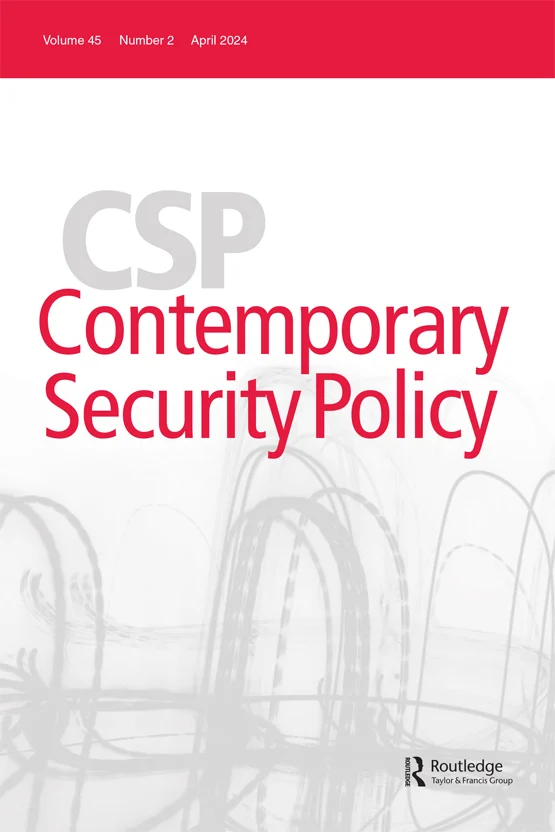Global Britain in the grey zone: Between stagecraft and statecraft
IF 5
1区 社会学
Q1 INTERNATIONAL RELATIONS
引用次数: 5
Abstract
ABSTRACT The United Kingdom’s integrated defense and security review put “grey zone” or “hybrid” challenges at the center of national security and defense strategy. The United Kingdom is not alone: The security and defense policies of NATO, the European Union, and several other countries (including the United States, France, Germany, and Australia) have taken a hybrid-turn in recent years. This article attempts to move the hybrid debate toward more fertile ground for international policymakers and scholars by advocating a simple distinction between threats and warfare. The United Kingdom’s attempts to grapple with its own hybrid policy offer a national case study in closing the gap between rhetoric and practice, or stagecraft and statecraft, before an avenue of moving forward is proposed—informally, through a series of questions, puzzles, and lessons from the British experience—to help international policy and research communities align their efforts to address their own stagecraft-statecraft dichotomies.灰色地带的全球英国:舞台艺术和治国方略之间
摘要英国的综合国防和安全审查将“灰色地带”或“混合”挑战置于国家安全和国防战略的中心。英国并不孤单:北约、欧盟和其他几个国家(包括美国、法国、德国和澳大利亚)的安全和国防政策近年来出现了混合性转变。本文试图通过提倡简单区分威胁和战争,将混合辩论推向国际决策者和学者的沃土。英国试图解决自己的混合政策,在提出前进的途径之前,通过一系列问题、谜题、,以及从英国经验中吸取的教训——帮助国际政策和研究界协调努力,解决他们自己的舞台艺术治国方略的二分法。
本文章由计算机程序翻译,如有差异,请以英文原文为准。
求助全文
约1分钟内获得全文
求助全文
来源期刊

Contemporary Security Policy
Multiple-
CiteScore
14.60
自引率
6.80%
发文量
22
期刊介绍:
One of the oldest peer-reviewed journals in international conflict and security, Contemporary Security Policy promotes theoretically-based research on policy problems of armed conflict, intervention and conflict resolution. Since it first appeared in 1980, CSP has established its unique place as a meeting ground for research at the nexus of theory and policy.
Spanning the gap between academic and policy approaches, CSP offers policy analysts a place to pursue fundamental issues, and academic writers a venue for addressing policy. Major fields of concern include:
War and armed conflict
Peacekeeping
Conflict resolution
Arms control and disarmament
Defense policy
Strategic culture
International institutions.
CSP is committed to a broad range of intellectual perspectives. Articles promote new analytical approaches, iconoclastic interpretations and previously overlooked perspectives. Its pages encourage novel contributions and outlooks, not particular methodologies or policy goals. Its geographical scope is worldwide and includes security challenges in Europe, Africa, the Middle-East and Asia. Authors are encouraged to examine established priorities in innovative ways and to apply traditional methods to new problems.
 求助内容:
求助内容: 应助结果提醒方式:
应助结果提醒方式:


